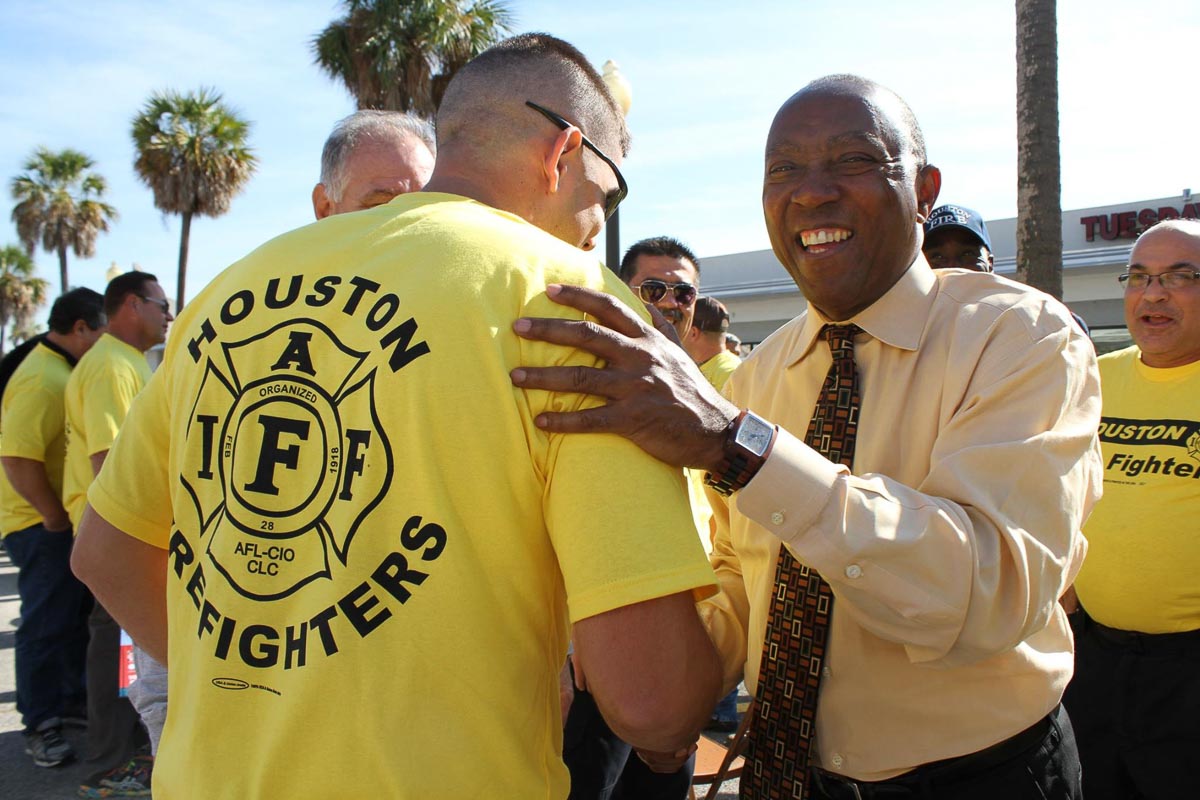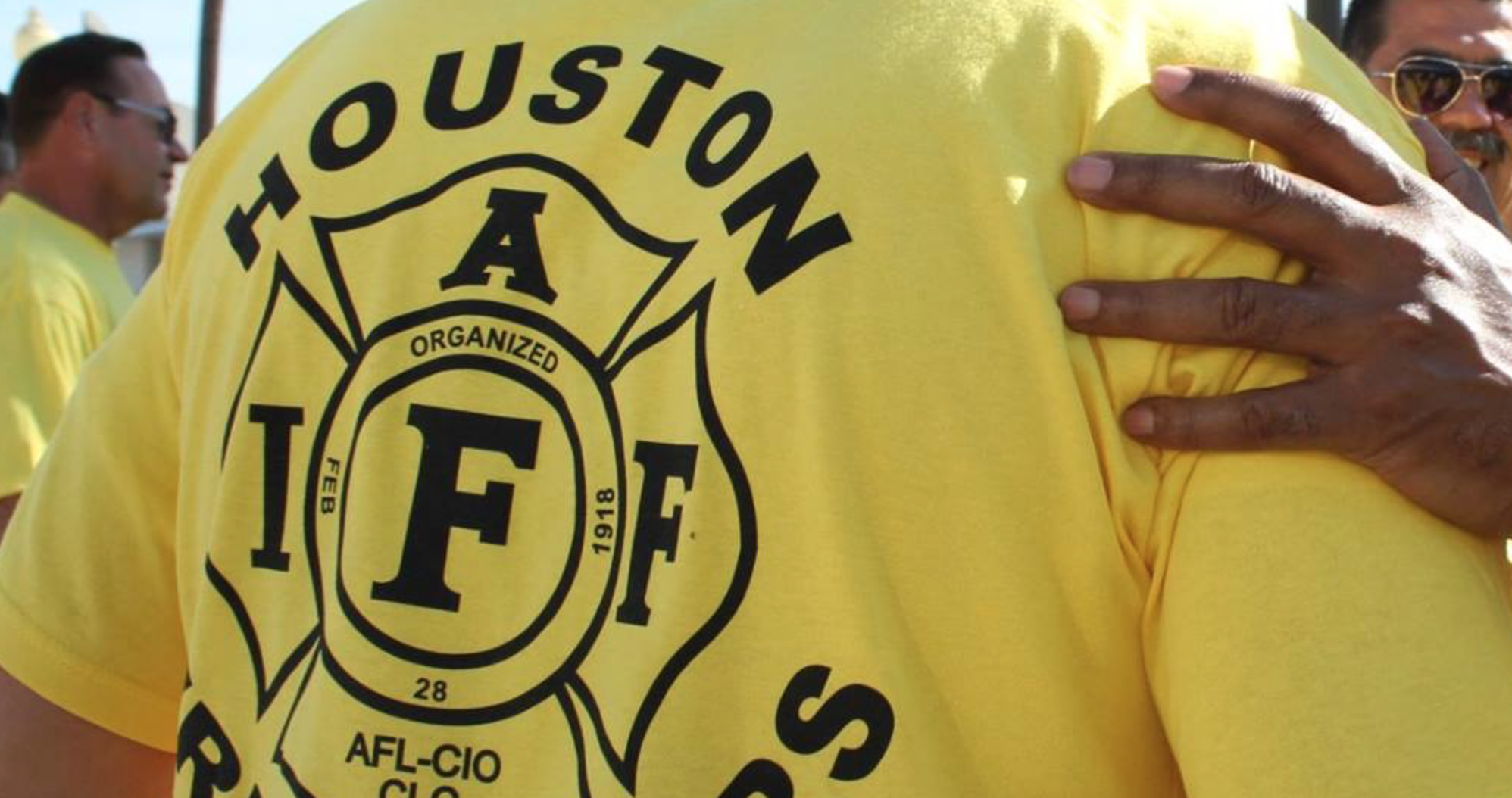
Photo: Sylvester Turner Campaign.
A year after Houston Mayor Sylvester Turner pledged to get a pension reform bill before the state legislature to address the city's spiraling unfunded liability, Turner returned to the stage Thursday for his 2017 State of the City address, days before a bill was headed to the state House for a vote.
"I feel very confident about our chances there," said Turner, "but as a former legislator I am not taking anything for granted and neither should you."
In an address marked by several appeals to the private sector to finance ambitious plans to house the homeless, foster an innovation district and revitalize five underserved communities, Turner told the crowd gathered by the Greater Houston Partnership, "If we do not invest in our city…we fail ourselves and our children."
Many of the same issues that dominated Turner's 2016 address -- pension reform, the revenue cap and housing -- remained priorities in this year's remarks.
With a Houston pension reform bill headed to the state House for a vote expected Saturday, the mayor was poised to make good on the promise of pension reform he made in 2016.
Assuming a reform bill does make it through the legislature, he said he would come back next year and ask voters to approve the removal of the revenue cap that he said has hamstrung city budgets. The city's revenue cap, which limits property tax growth, is costing the city $40 million to $60 million per year, according to Kinder Institute research.
The pension reform bill working its way through the legislature and championed by Turner has faced opposition from the Houston Firefighters Relief and Retirement Fund, which largely opposed further cuts to benefits. But the mayor touted the reform plan nonetheless, saying it would pay down the unfunded liability in 30 years and included significant cuts to benefits for city workers whom he thanked for their "tremendous sacrifice."
If the bill passed, Turner said Thursday he would bring a repeal of the revenue cap before voters in November. Since the cap went into effect in 2014, he said the city had foregone an estimated $221 million in revenue. And he expected financial challenges to continue in the next fiscal year thanks to sluggish sales tax revenue and a $122 million budget deficit. Still, Turner promised a budget this month with "minimal employee layoffs." The budget would also include funding for four new classes of police officers, Turner said.
Repealing the cap, he said, could help ease some of the financial straits the city finds itself in now, including an estimated shortage of some 600 police officers. "Police officers are not free, firefighters are not free," Turner told reporters after the address.
Several of Turner's high-profile initiatives, including the creation of a downtown innovation district and a promise to house 500 homeless individuals, are also facing financial challenges. With the housing voucher freeze, Turner said the city will only be able to house 249 chronically homeless individuals, asking the private sector to make up the remaining $2.1 million it would cost to house the full 500. "We can do better," he said, calling on the crowd of business and civic leaders.
Turner also called on the private sector to support the creation of an innovation district and to bring business and economic development to the five underserved neighborhoods targeted in his Complete Communities initiative. And he called on local universities, with the University of Houston in the lead role, to build a data science center and "make it happen" after plans for something similar, led by the University of Texas, recently fell through. Turner said such a center "represents a unique opportunity for Houston to diversify our economy” and establish itself as a leader in new technology.
"The city of Houston in 2017 has never been more ready," Turner said.
After reiterating Houston's position as a welcoming city for immigrants, Turner and Houston Police Chief Art Acevedo fielded questions from reporters about the likely passage of the state's anti-sanctuary city bill, awaiting the Governor's signature, that would penalize jurisdictions that don't cooperate with federal immigration agents' requests.
"We will follow any federal dictate, any state law that remains consistent the United States Constitution (and) with the Supreme Court," said Turner, who stressed that the police would not engage in profiling and would only cooperate with immigration agents if someone was apprehended while committing a crime.
"We don't see anything we have to change in terms of how we are doing business," added Acevedo.
His concern, the chief said, is the potential chilling effect the bill has already seemed to have. He cited a reduction in the number of sexual assault cases reported by the Hispanic community this year, even as sexual assault cases reported by non-Hispanic people are on the rise.
"I am the mayor of every Houstonian," Turner said in his address.

